Matt Valeo is a 32-year-old entrepreneur and former professional poker player who founded the tech startup Documo. Raised by a single mother in Las Vegas, New Mexico, Valeo dropped out of high school at 17 and pursued a career in sales before discovering his passion for poker.
After Black Friday shut down online poker in the US in 2011, Valeo transitioned to the tech industry, working for a small firm in San Diego. He leveraged his unique background and problem-solving skills to build a successful business with his partner, Matt S (who was a full time poker player at the time).
Matt Valeo is also the founder of a new poker room called Phenom Poker. According to the company's Twitter, it will have "Stakes from micro to high stakes" and plans to "launch with ~30 poker variants." Matt also says the team has "been in poker for decades" and will be taking security more seriously than other sites. They'll also be doxxing confirmed cheaters and making their identities public, which is definitely a unique approach.
After hearing his approach to business and poker, we'll see what he has to say about Phenom Poker.

Getting Humiliated is Part of the Process
Matt Valeo: You know, I think if you're not getting humiliated from time to time, then you are not taking enough risks and you're not pushing yourself to be the best version of yourself. If you have no failure in your life, if you have no humiliation, you're just too complacent.
Daniel "Jungleman" Cates: Did you ever have some things that you had to fix when becoming an entrepreneur or were you naturally on point for the entire time?
Matt: Oh God, it's constant learning, constant growth. Even now, I've been a tech entrepreneur for call it 10 years. It's like poker, you can never just solve and beat it. If you're not learning, if you're not growing, you're falling behind because things change so fast, particularly in the tech industry. It's a very fine line from going from being the disruptor to the disrupted.
Keep in mind, all the big companies at one point or another were the disruptors. Then they got big and slow and successful.
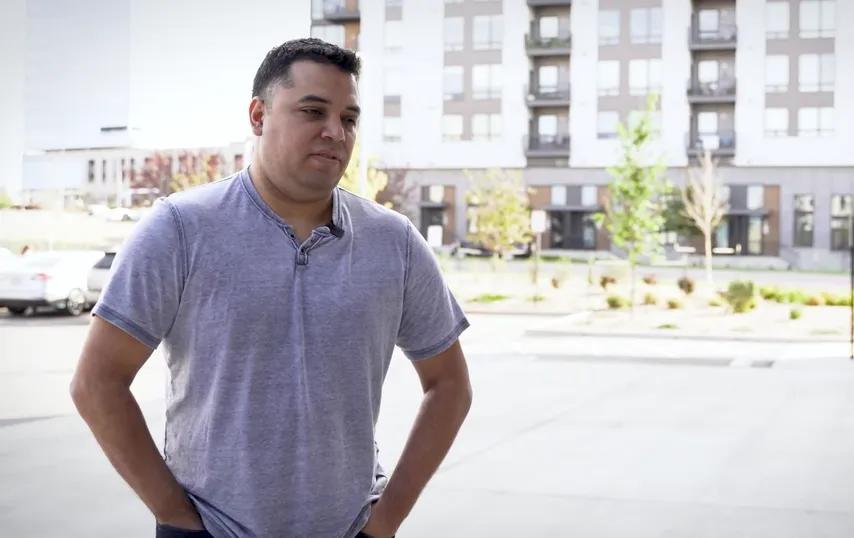
No knock on them for being super successful, but you end up getting to a place where you can no longer move fast or nimble. You can no longer recruit maybe the best of the young minds because they have an entrepreneurial spirit, they want to work on something new and exciting. So you have a hard time getting those types of people. You have a hard time innovating because now you have massively profitable revenue streams that are maybe from older products. You're not just going to shelf those products because they're profitable.
What happens is, someone comes along and has a different spin on the idea and they're faster and more nimble than you. You're the disruptee now and they're the disruptor. It's a fine line and I think one of the ways that can happen is getting complacent by saying, "Okay, I'm happy and fat and comfortable. I made my money."
Innovating is hard. It's hard to go and have a new idea and to challenge it in the marketplace and to get sometimes your idea is going to get flatly rejected by the market. The market's going to say, "No, I don't care about your idea." Then you have to go and iterate on that idea and you have to fix it, sometimes just scrap it all together and come up with a new idea. That's hard.
So to answer your question, no, there's no state of being where it's like, "Yeah, I just unlock, I got it all covered." No, I think if you're not getting humiliated from time to time, then you are not taking enough risks and you're not pushing yourself to be the best version of yourself. If you just have no failure in your life, if you have no humiliation, you're just too complacent. So, I get humiliated constantly and that's because I'm always trying to push myself and trying to find out where my limits are.
Daniel: Who would have thought some healthy humiliation is good every now and then?
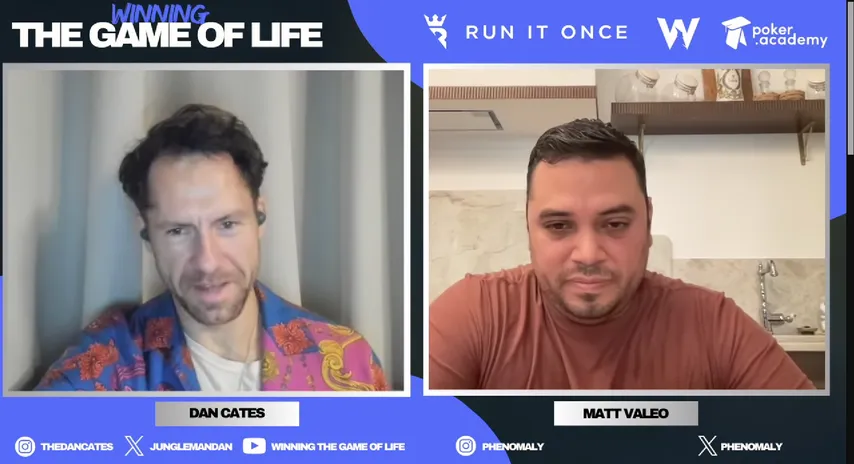
Matt: I guess self-awareness is one of the most valuable and wide-ranging useful skills you can have. It's very helpful in a wide variety of areas from business to personal life and everything else. You have to be willing to laugh at yourself sometimes and put yourself in situations where you're not just always getting the best of it.
If you really like to learn, surround yourself with people that are smarter than yourself. If you're in a group of friends where you're the smartest guy in the room, it can be kind of fun to be the guy that everyone's going to for advice and that can stroke your ego a certain way and that's great. But if you really want to get better, then sit in the group where you just know nothing and you're now absorbing the information.
I think that's going to pay a lot more dividends than the other situation, for sure.
Learning Life and Business Strategies from Poker
Daniel: I want to ask, what lessons did poker teach you that you used for tech? Did you find it particularly useful?
Matt: Absolutely. Being a professional poker player is an incredibly entrepreneurial experience. You are completely in control of your own destiny. You have to be able to manage your time, and manage your money.
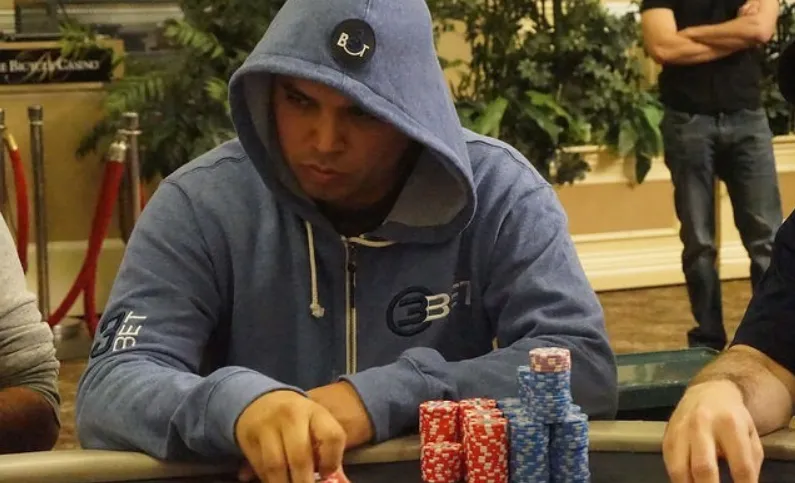
You have to take calculated decisions. Playing poker for a living is really understanding the whole concept of large sample sizes and making consistently good decisions as often as possible. That's going to yield a mathematically good outcome and a positive expectation of value. That really applies to the game of life, including entrepreneurship.
Exactly 1 bullet each. He advanced, I did not. GL to him and other friends still in. I'm back on the grind. pic.twitter.com/4BafI7MiVU
— Matt Valeo (@Phenomaly) August 23, 2016
If you're going to start a company, you got to be very analytical in your approach. You got to go and understand the market that you want to go into. You have to understand how much it's going to cost and even if you might be wrong, and you probably will be if you're a first-time entrepreneur, you're probably completely wrong. But at least do the exercise of going, "Okay, I think it's going to cost me this much to develop the product. I think it's going to cost me this much to acquire users. I think it's going to take this much time. I think I'm going to have to put this much work in per day to yield this outcome. I'm going to need this many people." You have to do that mental exercise through all facets of the game.
Poker translates to that quite a bit actually.
If you're playing poker for a living, you have to think, "Okay, well what is my win rate in this game that I'm playing? How many hands do I have to play to yield whatever outcome I'm looking for, whether it's a win rate per hour or per month or per year?" You have to figure all these things out and then you have to go in and execute. That all translates really well.
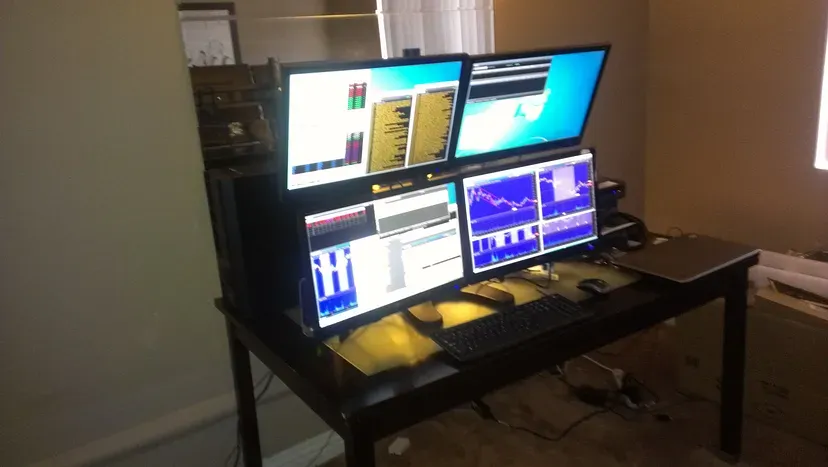
I think poker also teaches you discipline. You have to put in the work, there are no shortcuts. The downside to poker is it's not leverage. If you're a back player or whatever, you're playing outside your bankroll. But for me, I was never a back player. I always play with my own money. So it's all one to one, whereas in a business you can leverage your output which is really fun because you can turn your time and your idea, your expertise into 10,000x returns, which can't really happen in poker. I guess in tournaments to a degree, but it still ends up being per-hour game unless you're just running way above expectation. So there's a lot of things that translate from poker to entrepreneurship for sure.
Daniel: Yeah, poker's not very scalable but it is a good way I think for people to make quite a bit of money to get to the point where they can become entrepreneurs actually, to now make it kind of safe and now they have the bit of the skill set.
Matt: Well, it might not be everyone's goal to go into entrepreneurship.
Daniel: Well yeah, of course.
Matt: I think you know, not everybody wants to be a billionaire. I mean, the idea of it might sound nice or whatever, but you can accomplish pretty incredible lifestyles for relatively reasonable sums of money and you can certainly earn those sums of money playing poker. If you can get to financial freedom and true happiness and understand the whole concept of success doesn't necessarily equate dollars. Dollars are a tool that we use to buy time, buy more freedom. Depending on the kind of lifestyle that you want, that's important to you. There's so many paths to take it and poker for many can be one of those paths.
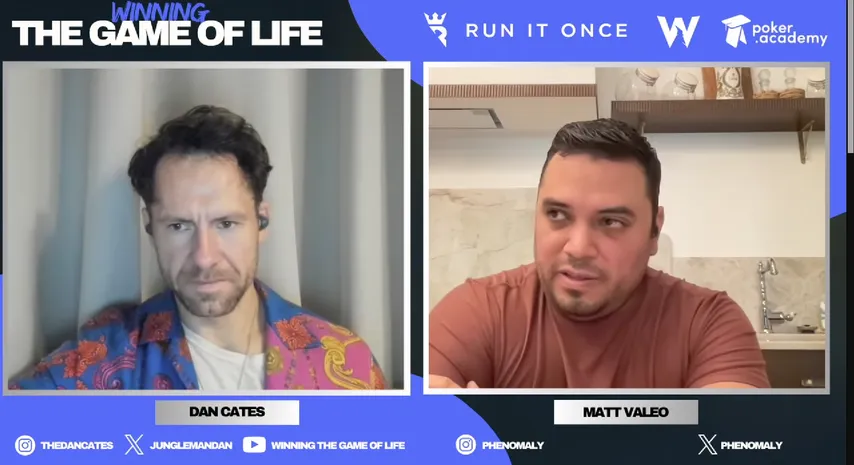
Daniel: Yeah, no, I mean 100%. Poker can lead to a lot of different paths but I just think it's a useful bridge towards all the skills towards entrepreneurship. It's one of the hopes of the community that I am launching, though it approaches things from multiple angles.
For one, I want to inject positive culture, which I think will be a massive impact towards creating positivity. I want to ultimately be able to lead people towards entrepreneurship once I figure it out myself for the real crazy ones that want to do something that really does make a big impact. So yeah, that's one of the reasons why I built all this so people can get some ideas if they're bold enough to pursue these crazy ventures and really make a difference.
Matt: It's a noble pursuit I think. I think there's a lot of people out there that have an entrepreneurial drive but that don't know how to get started or they feel like they're completely just lost in the abyss of "What do I do and how do I do it?"
It's one of the reasons I'm very interested in startup investing. I personally like to invest in, I don't like to go and participate in the super competitive rounds where the same group of Silicon Valley investors are all trying to compete and bid into getting these crazy rounds.
I like to invest in really the underrepresented founders, people like myself who come from the middle of nowhere and don't have any network in tech or anything. That's like, "Hey, I have this idea and I have the drive and I have the work ethic and everything. I just need someone to believe in me." I've been there, I've been that person and it's really, really difficult. So, I like to invest in people like that that have all the traits but they just need a little bit of direction and they're willing to listen to advice.
Daniel: That's literally angel investing by the way. That's the actual job of angel investing.
Matt: Well, I'm an angel investor. It's not my full-time job, but yeah, I like to, I'm not an institutional investor. I invest my personal funds and it's something that I enjoy doing because I enjoy kind of helping to share the lessons of some of the things I've learned. Particularly for founders who took a non-traditional path to get to wherever they are and again, willing to listen, willing to learn.
I'm not saying I have all the answers or anything like that, but it's like one thing that would have been really helpful to me is if I had some of that guidance. Instead of telling you, "Well, you're like, how'd you do that?" I'm like, "Well, trial and error, trial and error." I would have been like, "Well, I had a guy who I turned to for advice and they helped me."
So, I would like to be that guy.
What is Phenom Poker?
On a podcast in April 2024, Matt Valeo had this to say about his new creation, Phenom Poker:
"A lot of us in the poker industry have been waiting for something new and innovative in the space that has a focus on transparency, security, and protecting the players."
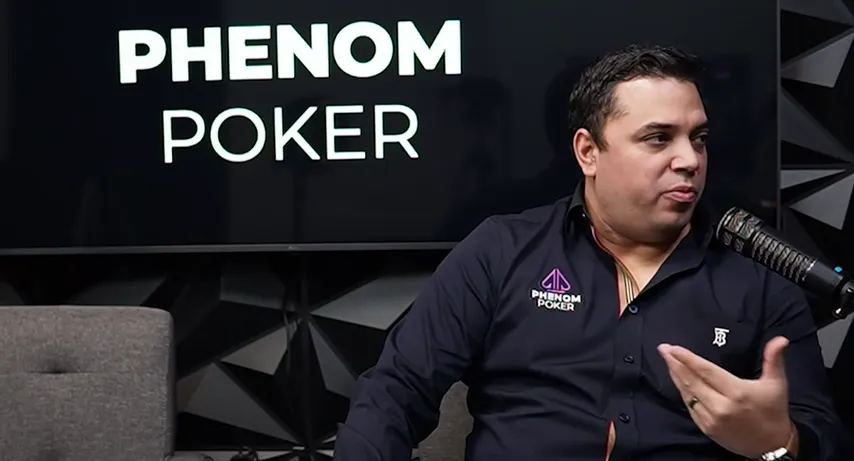
On Cates' podcast a month later, he gave more details about the catalyst for Phenom Poker.
Matt Valeo: The idea for Phenom Poker really comes from that background of being in poker for 20 years combined with about 10 years of working in the technology world. Just like everybody else, I'm seeing the scandals, the stuff on Twitter, people getting cheated, Bots, collusion, RTAs, stables. I'm seeing the same stuff everyone else is seeing, with an entrepreneurial mindset. When you see a problem, you just kind of want to solve the problem, at least the problems that affect you or that you understand maybe better than the average person.
Every time I would see these site responses regarding cheating, and some Twitter sleuth breaks a scandal, the response is usually not very detailed or transparent. It leaves you with the impression that there's just nothing that can be done about this.
I differ from most people in that they're like, "Okay, well if they say it can't be done, it can't be done." Whereas when I look at something, I go, "Really? That doesn't seem right. That doesn't really add up." If a Twitter sleuth can identify this problem, you as the site administrator with access to all the data, the tools, and the resources to invest in solving it should probably be doing a better job.
That's when I decided to start putting thought into, well, if we were to create a new site, what would it look like?
Howdy poker world! 👋
— Phenom Poker (@PhenomPokerApp) January 22, 2024
We need to have a chat. The time has come to take a long, hard look at the industry so many of us enjoy.
Every week it seems there's a new scandal. Whether it's cheating on a live stream. Cheating in a home game. A superuser on one site. Bots on another…
How is Phenom Poker Different?
Matt Valeo: There's not like a magic button that Phenom Poker has that's going to be like, "We're just going to push the stop cheating button and then cheating's going to end." That's not a thing.
I think the difference is creating an alignment of incentives so that the operators of Phenom Poker are always highly incentivized to do what's best for the community. I think that's the most important difference. Because from a pure technology standpoint or utilizing tools or resources to fix the problem, there's a plethora of different ways you can go about it.
Some of the ways that we think will make a difference is by investing in more updated technology, having a platform that's built on the most modern tech stack, and utilizing the most advanced vendors that are built to fight non-human behavior online. There's always hackers when there's money at stake.
I just think when I look out there into the landscape of online poker operators, you see very dated software which inherently is going to come with antiquated methods. You're only as good as the thing you're trying to protect. You can't have 15-year-old software and think that you're going to have the best ability to aggregate data or identify certain behaviors.
Also, if you have a multitude of different clients that are out in a production environment, for example, if you have all these different downloadable desktop apps, mobile apps, and you're not the actual creator of these technologies, you're pretty handcuffed on how you can manage all these different client access points that need constant updates. Are you forcing updates? Are you keeping up with all the new browsers, mobile devices, tablets? All these things, it's very difficult for even a tech-native company and it's extraordinarily difficult for a non-tech-native company. We know that most of these operators are not tech-native companies.
A good example would be WSOP.com. They're licensing 18-year-old 888poker software, and it's not a secret. Just look at the software.
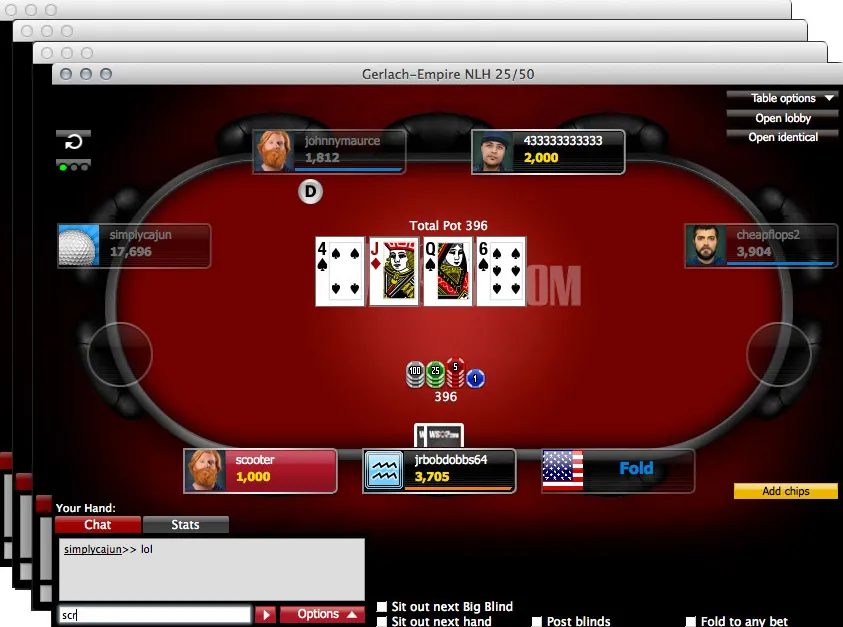
Clearly, Caesars does not want to be in the technology business. They'd rather be in the operate-a-profitable-site business, which is fine, but you can't tell me that you're taking security very seriously when you don't have the investment and control in these areas.
So we plan to make those investments, utilizing the right vendors, taking a really data-driven, tech-driven approach to identify all the different types of pattern recognition that the data allows us to look at, like collusion scenarios. Also making decisions on how we handle data mining, which is how RTAs happen. You have a data mining scenario and then they turn that into software to make real-time assistance possible. We have to make very strategic decisions around that. Some of the decisions are still being made and I think the community will have an input on them, while other decisions are really more about just hiring the right people and making the investment.
Daniel: Yeah, that makes a lot of sense.
– Avoid sites with security problems or weak software. Always check verified reviews and find out long before registration.
Reducing the Incentive of Cheating by Doxxing
Matt Valeo: We talk about the alignment of incentives, you can also create disincentives. If you want to incentivize the right behavior, you look at the behavior and you say, "How do I incentivize this behavior?" But then if you look at a behavior that you don't want to happen, you say, "How do I disincentivize this behavior?"
A good example with Phenom Poker is in our user agreements. We have in there, that if you play on Phenom Poker, you are giving the site permission, if you're caught cheating or doing something to break the rules or something that's unethical, you give Phenom Poker permission to publicly release the data and your real identity. This creates a big disincentive to cheat on Phenom Poker.
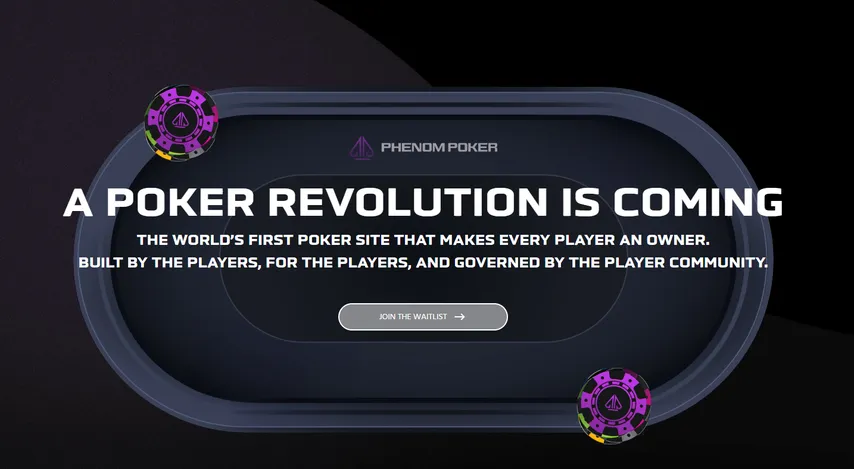
In another scenario, like if somebody is just plugging into a network – and I don't want to publicly put other operators' names out there – but there's a lot of poker networks that have skins that make it very easy to create accounts. An agent can just create an account without verifying your identity or doing other things, and you then now have access to the liquidity pool of the entire network. If you do something, if you're running a stable or a bot ring or something like that and your account is banned, well, you just create another account. Easy.
If your account is tied to your actual identity, you might not have the same incentive to do that. Because not only are you going to get banned, your identity, where you can't create another account unless you have another identity, if you're caught cheating on Phenom Poker, your actual identity is put out into the poker community, ruining your reputation. We've seen this happen, not by operators putting out that data, but just by players that get caught cheating and now it becomes public information. It's severely damaging to their ability to play poker in the community. Some of them don't care, they just show up and play anyway, but a lot of the time, it really changes things.
I think we need more of that in our community – transparency and not putting players in a position where they're playing with people that are taking advantage of the situation or doing things unethically and there's no repercussion whatsoever. Because that's an incentive to keep doing it. If I can make more money by cheating and nothing's going to happen, well, I'm just going to continue to cheat.
Daniel: Yeah, well then you, as you said, if someone has the mindset of "I'm going to cheat to make money" and they're rewarded for it or not punished appropriately, why would they ever stop? They would be like, "Okay, it actually is a smart decision. Maybe it's even smart", you know what I mean?
– If you want to catch the full interview between Daniel and Matt, you can watch it on YouTube.




















